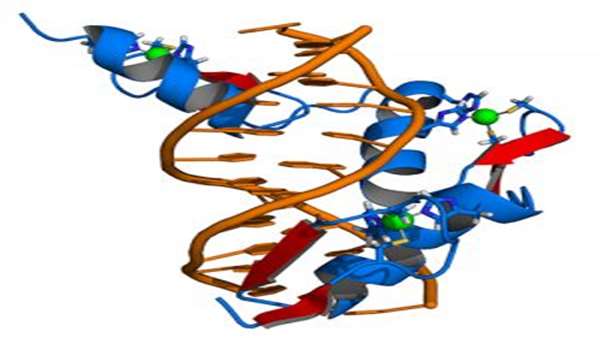Researchers at the University of Toronto (U of T) and NYU Grossman School of Medicine have developed a novel artificial intelligence technology, called ZFDesign, that can design zinc finger (ZF) proteins to target any stretch of DNA in the human genome, opening a door toward gene therapies for a broader range of health conditions. The researchers fed data from billions of interactions between ZF proteins and DNA into a machine-learning model, which can then generate engineered zinc fingers that bind to the given DNA sequence.
The model is based in part on technology that also forms the basis of ChatGPT, a software application developed by OpenAI that simulates human conversation. The model generates amino acid sequences for ZF proteins using large, highly detailed data sets and techniques similar to natural language processing.
ZFs are a common class of human proteins that regulate such gene expression, a process that transcribes genetic information into RNA molecules and proteins. Scientists have long seen their potential because they naturally bind with DNA, are less likely than CRISPR and related technologies to trigger an immune reaction, and are small enough to work with clinical delivery methods.




ارسال به دوستان